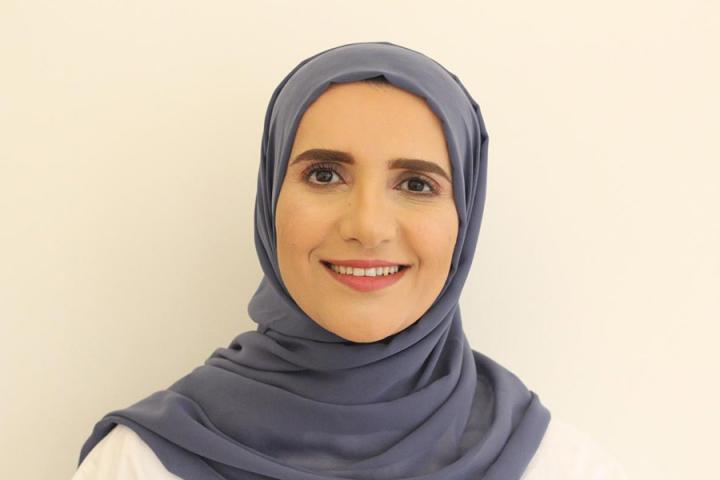PhD graduate wins Man Booker International Prize 2019
Jokha Alharthi reflects on her time in a "literature paradise" as a postgraduate student of Islamic and Middle Eastern Studies in Edinburgh.
Jokha Alharthi graduated with a PhD in Islamic and Middle Eastern Studies from the University of Edinburgh in 2011. Eight years on, and now based back in Oman, she has won the Man Booker International Prize 2019 for her novel Celestial Bodies.

Jokha is the first female Omani novelist to be translated into English, as well as the first author from the Arabo-Persian Gulf to win the £50,000 prize, celebrating the finest works of translated fiction from around the world.
She shares the award with Marilyn Booth, Iraq Professor of Arabic and Islamic Studies at Edinburgh (2009-2014), who translated Celestial Bodies from Arabic into English.
Feeling in the right place
Speaking to the University’s Alumni office, Jokha reflects back on her early years in the School of Literatures, Languages and Cultures (LLC), saying: “one of my dearest memories at the University started at an English Literature class. It was where I started feeling I was in the right place despite me feeling a bit out of place too. I felt like a member of an ancient elite group discussing literature in such a special place.”
“It was my first year then, struggling to adapt to the cold weather while trying to handle my first baby’s (Khuzama) feeling of loneliness. But the literature classroom moments saved me. That feeling of being immersed in my dream: a literature paradise."
“Later on, everything in the city enhanced this feeling: small bookshops, tiny cafes, traditional architecture, culturally and intellectually stimulating discussions and art venues.”
“Every time I go back, I realise that this is the city that has enriched my experience as a writer and I am grateful to it.”
The importance of translation
Published by Scotland’s Sandstone Press, Celestial Bodies tells of family connections and history in the coming-of-age account of three sisters in an Oman slowly redefining itself after the colonial era.
In an interview on the Man Booker Prize website, Marilyn Booth reflects on what it means for Sandstone, “the small literary press in Scotland that took on this book even though they had not published any Arabic literature before”, and for the craft of translation.
“I appreciate very much that this prize recognises not only the power of the work in the language in which it was imagined and written, but also the importance of translation as creative writing and as responsibility, to readers and to the author of the original.”
“I think what I like most [about the book] is the use of language, or languages: the distinct idioms or sociolects of differently placed characters, the vivid use of local expressions and usages, in particular the conversations amongst women.”
Are you interested in Islamic and Middle Eastern Studies at Edinburgh?
Offering a wide range of undergraduate and postgraduate degree combinations, including a PhD in Islamic and Middle Eastern Studies, we are the only university in Scotland to teach courses in the Muslim world’s three main languages, placing Arabic, Persian and Turkish in the context of history, literature, culture, religion and politics, past and present.
Related links
Read Jokha's Edinburgh interview in full on the University's Alumni pages
Read an interview with Jokha and Marilyn on the Man Booker Prize website

